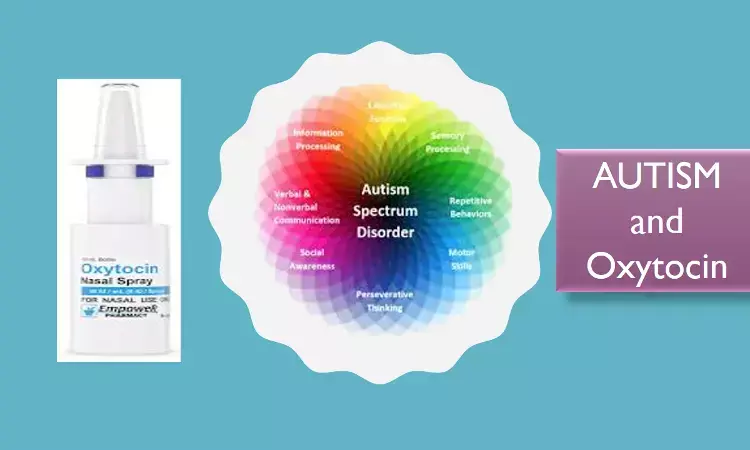- Home
- Medical news & Guidelines
- Anesthesiology
- Cardiology and CTVS
- Critical Care
- Dentistry
- Dermatology
- Diabetes and Endocrinology
- ENT
- Gastroenterology
- Medicine
- Nephrology
- Neurology
- Obstretics-Gynaecology
- Oncology
- Ophthalmology
- Orthopaedics
- Pediatrics-Neonatology
- Psychiatry
- Pulmonology
- Radiology
- Surgery
- Urology
- Laboratory Medicine
- Diet
- Nursing
- Paramedical
- Physiotherapy
- Health news
- Fact Check
- Bone Health Fact Check
- Brain Health Fact Check
- Cancer Related Fact Check
- Child Care Fact Check
- Dental and oral health fact check
- Diabetes and metabolic health fact check
- Diet and Nutrition Fact Check
- Eye and ENT Care Fact Check
- Fitness fact check
- Gut health fact check
- Heart health fact check
- Kidney health fact check
- Medical education fact check
- Men's health fact check
- Respiratory fact check
- Skin and hair care fact check
- Vaccine and Immunization fact check
- Women's health fact check
- AYUSH
- State News
- Andaman and Nicobar Islands
- Andhra Pradesh
- Arunachal Pradesh
- Assam
- Bihar
- Chandigarh
- Chattisgarh
- Dadra and Nagar Haveli
- Daman and Diu
- Delhi
- Goa
- Gujarat
- Haryana
- Himachal Pradesh
- Jammu & Kashmir
- Jharkhand
- Karnataka
- Kerala
- Ladakh
- Lakshadweep
- Madhya Pradesh
- Maharashtra
- Manipur
- Meghalaya
- Mizoram
- Nagaland
- Odisha
- Puducherry
- Punjab
- Rajasthan
- Sikkim
- Tamil Nadu
- Telangana
- Tripura
- Uttar Pradesh
- Uttrakhand
- West Bengal
- Medical Education
- Industry
Intranasal oxytocin does not improve social cognition in kids with autism, finds NEJM study.

Experimental studies and small clinical trials have suggested that treatment with intranasal oxytocin may reduce social impairment in persons with autism spectrum disorder.
In this issue of the NEJM, Sikich et al. have presented the results of a double-blind, placebo-controlled trial of intranasal oxytocin, in children and adolescents with autism spectrum disorder. The study found no significant impact of oxytocin treatment on measures of social or cognitive functioning over a period of 24 weeks.
Autism spectrum disorder, a common neurodevelopmental disorder with onset in infancy, is characterized by deficits in social functioning and by repetitive–restrictive behaviors, such as repeated body movements, circumscribed interests, or resistance to change in routines. Pharmacologic interventions are limited to the treatment of symptoms, which does not target social deficits.
The potential of the neuropeptide oxytocin as a "pro-social" hormone has gained attention for the treatment of autism spectrum disorder. Some research suggests that oxytocin modulates the salience and reward properties of social stimuli in animals and humans; however, its effects are diverse and dependent on species, sex, and social context.
Sikich et al conducted a 24-week, placebo-controlled phase 2 trial of intranasal oxytocin therapy in children and adolescents 3 to 17 years of age with autism spectrum disorder. Participants were randomly assigned in a 1:1 ratio to receive oxytocin or placebo, administered intranasally, with a total target dose of 48 international units daily.
The primary outcome was the least-squares mean change from baseline on the Aberrant Behavior Checklist modified Social Withdrawal subscale (ABC-mSW), which includes 13 items (scores range from 0 to 39, with higher scores indicating less social interaction). Secondary outcomes included two additional measures of social function and an abbreviated measure of IQ.
The least-squares mean change from baseline in the ABC-mSW score (primary outcome) was −3.7 in the oxytocin group and −3.5 in the placebo group (non-significant). Secondary outcomes generally did not differ between the trial groups. The incidence and severity of adverse events were similar in the two groups.
Thus, there was no effect of intranasal oxytocin therapy on the primary outcome.
Does it mean the end of road for oxytocin?
In an accompanying editorial, Daniel H. Geschwind, M.D., Ph.D. mentions the limitations of this study. " …it may be premature to summarily reject the oxytocin signaling pathway (or efforts to increase social motivation in general) as a potential treatment target in autism spectrum disorder".
"The drug was administered without concomitant standardized behavioral intervention for social skills. Should we expect that increasing motivation alone, without contemporaneous behavioral intervention, would lead to ongoing improvements in social function? Motivation is just one component of the social behavior equation. An analogy would be an attempt to build athletic prowess by the administration of anabolic steroids without simultaneous rigorous physical training", argues Geschwind.
So, what lies ahead?
Looking ahead, as we enter the era of precision medicine in which treatment may be based on genetically informed disease mechanisms, the hope is that we can leverage genetic and molecular biomarkers in trial design and patient selection to improve outcomes in autism spectrum disorder and other neurodevelopmental disorders. Clinical efficacy of oxytocin may require drug administration that is temporally coupled with behavioral intervention.
Source: NEJM:
1. DOI: 10.1056/NEJMoa2103583
2. DOI: 10.1056/NEJMe2110158
M.B.B.S, M.D. Psychiatry
M.B.B.S, M.D. Psychiatry (Teerthanker Mahavir University, U.P.) Currently working as Senior Resident in Department of Psychiatry, Institute of Human Behaviour and Allied Sciences (IHBAS) Dilshad Garden, New Delhi. Actively involved in various research activities of the department.
Dr Kamal Kant Kohli-MBBS, DTCD- a chest specialist with more than 30 years of practice and a flair for writing clinical articles, Dr Kamal Kant Kohli joined Medical Dialogues as a Chief Editor of Medical News. Besides writing articles, as an editor, he proofreads and verifies all the medical content published on Medical Dialogues including those coming from journals, studies,medical conferences,guidelines etc. Email: drkohli@medicaldialogues.in. Contact no. 011-43720751


